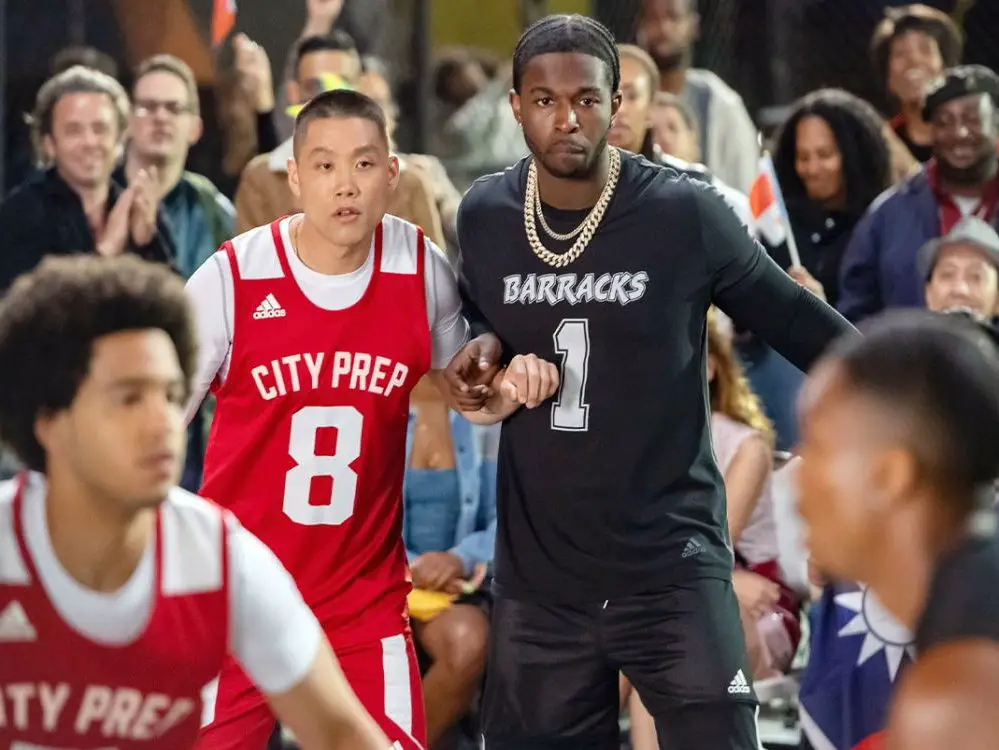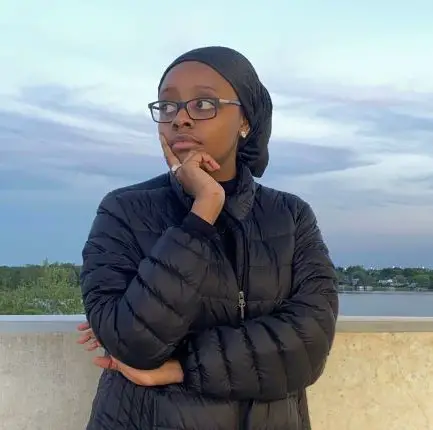Basketball in Queens, teenage responsibilities and centuries-old Chinese family traditions illustrate the narrative in “Boogie” — the directorial debut of the “Fresh Off the Boat” author and restauranteur Eddie Huang. The film centers on Alfred “Boogie” Chin, an 18-year-old NBA prospect with big dreams and even heavier demands from his family.
As the only child of traditional Chinese American parents and conceived out of wedlock, Boogie is burdened by a number of expectations. His supportive but frequently incarcerated father expects him to represent China authentically in the NBA, which proves difficult because of his American upbringing. However, Boogie’s mother picks up the family’s slack with grace but does not seem to care about ethnic representation in basketball; she just needs Boogie to get a scholarship so they can start shedding off debt.
To fulfill these expectations, Boogie transfers to a high school with a better basketball program and aims to achieve his father’s dream of becoming the No. 1 player in the five boroughs of New York City.
Boogie’s character is portrayed by breakout star Taylor Takahashi. He engages in deep conversations about adolescence and familial issues with Eleanor, played by Taylour Paige, who serves as the film’s love interest. Starring opposite Takahashi as Boogie’s rival, Monk, is the late Bashar “Popsmoke” Jackson. Richie — Boogie’s best friend and wingman — is played by Jorge Lendeborg Jr.
The film explores multiple cultures, including Eleanor’s Trinidadian roots, Richie’s Dominican background and, of course, Boogie’s Chinese customs. A writer for Rolling Stone commented numerous times on the film’s diverse casting, saying it was “such a nice sentence to write … There are really no white characters to speak of here.”
“Boogie” subtly undermines the established norm of letting white voices intrude in stories belonging to people of color, allowing the characters to tell their stories without watering down the realities of the survivor mentality of people belonging to immigrant families and other minority groups. Boogie struggles to find his place in a community of many ethnicities being overcome by a universal culture — an American culture.
Real-life incidents and notable figures are shown in this film. Boogie bonds with his father while he is on parole by watching a tape of 17-year-old Michael Chang winning the 1989 French Open with him. Boogie’s father refers to this as the greatest moment in Asian American history, which inspires Boogie to bring up basketballer Yao Ming holding the Chinese flag at the 2008 Olympics.
Another notable figure mentioned in “Boogie” is Jeremy “Linsanity” Lin in what is perhaps a less admiring manner. Boogie explains to Richie that as an Asian basketball player striving to go pro, he faces more trials than other up-and-coming players because of how rare it is for him to see professional figures that not only look like him but — are — like him. He refers to “Linsanity” as one of those model minorities who are different from the group they come from. Boogie views Lin’s legacy as one more expectation that he’ll be burdened with if he’s able to succeed at basketball.
A concurrent theme throughout the film is the exploration of J.D Salinger’s “Catcher In the Rye.” The novel is discussed in Boogie’s English class and as part of his group assignment with Richie. Boogie holds Holden in low regard and is frustrated by how eager the fictional character is to take on responsibilities. In a semi-outburst, Boogie calls Holden out on his privilege: “Holden is privileged and anyone with that much free time is going to be good at complaining.” His unabashed contempt for the character is due to their different upbringings and obligations.
In a separate conversation with Richie, Boogie questions his indifference toward being assigned books and stories that neither of them can identify with. Richie denounces any form of apathy by explaining how his mother introduced him to Junot Diaz’s “The Brief Wondrous Life of Oscar Wao.” Richie elaborates on how it wasn’t easy to find a story related to his Dominican background but “if he keeps looking, there might be something.” Something related to who he is and what resonates with him.
And then there’s Eleanor. Boogie is drawn to her and she to him. They get off to a rocky start but eventually become each other’s confidants. They talk about his inability to see his parents’ love for him because of their lack of affection, and she expresses how she can’t feel her parents’ love for her because it seems to be more of an obligation than a willing action. Along with their parents’ love and lack thereof, the two talk about food and its relevance to their cultures. They both grow with each other and grow stronger and more understanding of what they didn’t grasp in the past.
https://www.instagram.com/p/CMA-bikAv2b/
In an interview with Stephen A. Smith on ESPN’s “Stephen A’s World,” Huang admits that one of the potential messages of the film is how compassion from parents goes a long way. Believing in your children does more than meets the eye. Huang also says it was an intentional choice to narrate an Asian story with music by Black artists like Popsmoke. His goal was to create “a film to make another kid like him feel less alien in society.” He was able to do so by intersecting communities, ideas and cultures to show the narrative as he envisioned it.
“Boogie” showcases how obstacles are not limited to climbing over walls and that sometimes you have to run through them to come out stronger. The movie was released in late March and can be viewed on Amazon Prime Video and on YouTube for a fee.

















